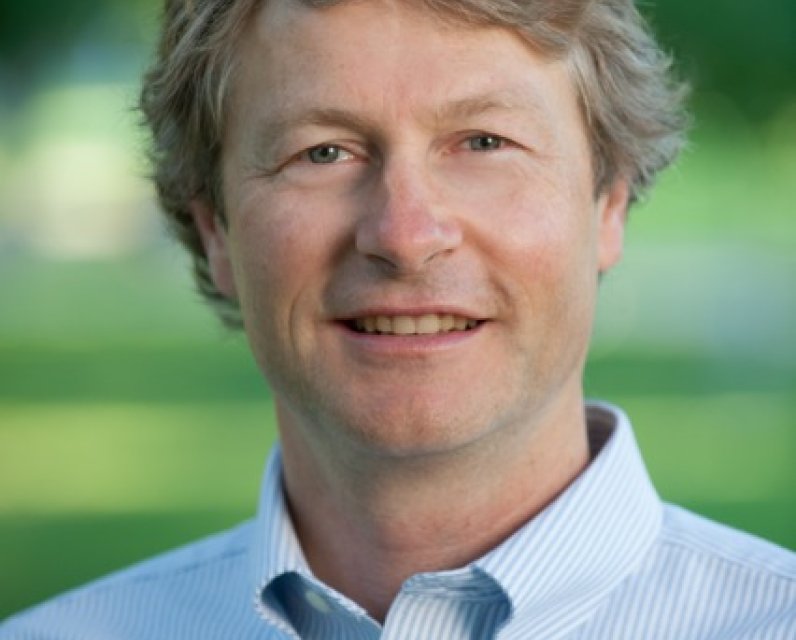Unpublished Opinions
David Chernushenko is an educator, public speaker, film producer and since December 2010, an Ottawa City Councillor. He works to promote prosperous communities and healthy livelihoods. From 2006-2009 he served on Canada’s National Roundtable on the Environment and the Economy. He has written three books on sustainable management practices and is a co-founder of Clean Air Champions, a national charity that involves athletes in tackling air pollution while promoting active living. He served for six years on the International Olympic Committee’s commission on Sport and the Environment.
David is the creator of the Living Lightly Project, a multimedia initiative that shares stories and solutions to build a richer future for all on a healthy planet. He has produced two films: Be the Change, released in 2008. and Powerful: Energy for Everyone released in 2010.
100% Renewable Ottawa

Empowering and uniting Ottawa in pursuit of a 100% Renewable energy economy
Ottawa and its citizens are increasingly vulnerable to rising energy costs and the impacts of climate change. We don’t have to be. With a strong commitment to smarter energy choices, we can dramatically reduce energy consumption and greenhouse gas emissions in this city and acquire all our energy needs from renewable sources. Ottawa can move from its current state of energy and climate vulnerability to one of resilience and opportunity.
The City of Ottawa should take the lead in creating a 100% Renewable energy strategy involving all sectors in the project, with the extremely ambitious and yet achievable target of becoming 100% Renewable by 2050.
CONTEXT
Benefits of 100% Renewable
- Diversified economic development
- More jobs, notably in decentralized areas of employment
- Resilience from energy price shocks and extreme weather events
- Improved mobility through greater transportation choice
- Reduction in greenhouse gas emissions
Ottawa, like many other large cities, is heavily dependent on fuel and electricity sourced and shipped from far way. It cannot control price and supply fluctuations or extreme weather events resulting from a changing climate. Also like most cities, Ottawa has done little to significantly alter the amount of energy our businesses, citizens and institutions consume, or to shift towards cleaner and renewable energy sources.
Yet hundreds of jurisdictions around the world, like San Francisco and Frankfurt, have set 100% renewable energy (RE) targets and are making enormous progress. Some have even achieved that goal, in terms of electricity demands or even liquid fuel needs for transportation and heating. They are doing so because an energy system dominated by fossil and nuclear energy sources will leave an unsustainable legacy of severely degraded air, water and soil, significant human health and social justice impacts, and potentially catastrophic climate changes.
Ottawa should do the same. The majority of our municipality’s geographic area is rural, providing agricultural and forested land as well as numerous rivers on which to draw. There are thousands of rooftops available in all parts of the city to capture solar power for electricity and heat, and numerous sites available for community-scale wind energy production. Ottawa also has a world-class workforce and academic research capability in every relevant field.
WHAT IS 100% RENEWABLE?
Renewable energy is electricity, fuel or other sources of heat and cooling derived from non-finite resources such as the sun, wind, water currents, biomass, biofuels and geothermal heat.
100% Renewable is a term that describes a geographical region (town, city, island, municipality or country) that produces all of its own energy needs or, more typically, that produces all of its net energy needs, selling a surplus of renewable electricity, biomass or biofuels to offset energy that must be imported.
WHY PURSUE 100% RENEWABLE?
Economic renewal and employment opportunities in research, manufacturing, design, installation, home and institutional building retrofits, architecture, heating and cooling engineering, biofuels, rail and cycling infrastructure construction.
Resilience to a changing climate, including increasingly frequent and severe weather events, through better management of storm water, urban forests, woodlots, river and stream catchment areas, and shorelines.
Energy supply resilience to cushion against unpredictable energy price changes and interruptions of supply, through significant demand reduction and diversification of supply, much of it sourced locally.
Community revival around local projects, including local food production, removal of unnecessary hard-landscaped spaces, street calming initiatives and co-operatively-owned renewable energy projects.
Employment opportunities in a wide range of burgeoning fields.
Poverty reduction through cost-of-living decreases resulting from lower home energy demands and greater mobility choices involving lower fuel costs.
Opportunity to unite all of Ottawa for the first time (since amalgamation) around shared goals for increasingly interdependent urban, suburban and rural areas.
KEY ELEMENTS
Conservation and efficiency
Increase energy conservation and efficiency by 50% in all sectors.
Transportation (rail, bus, active, fleet electrification)
Shift transportation modal choices from private automobile use to public transit and active transportation modes; increase electrification of all vehicle types; offer safe and attractive walking and cycling options for all areas and trip types.
District energy
Implement a district energy approach when building new suburbs and precincts, generating electricity and heat on site to meet the needs of residential, commercial and institutions buildings.
Energy from waste (combined heat and power)
Maximize the amount of energy (combined heat, power and cooling) derived from waste (residual after the diversion of recyclable and compostable materials), through a plasma gasification or other leading-edge incineration plant. Minimize greenhouse gas emissions and air, water and soil pollution.
Building renewal – public
Retrofit City of Ottawa buildings, including partner agencies such as Ottawa Community Housing. Build all new buildings to a very high standard. Use available rooftops for solar heat and power generation, green roofs or low-emission roofs. Maximize options for reducing heat absorption by landscaping elements through depaving, naturalization and other green infrastructure approaches.
Building renewal – private
Adopt mandatory energy standards and labelling for future building construction. Provide incentives for cutting-edge energy efficiency and generation in private construction through City approval processes, financing guarantees, loan mechanisms and other barrier-busting approaches.
Renewable energy generation (solar photovoltaic, solar thermal, wind, biomass, biogas, microhydro)
Allow all citizens and institutions/businesses to purchase electricity and fuel from renewable sources, either by developing their own projects or by investing in local projects. Remove non-essential obstacles (regulatory, cost of connection, overly-restrictive engineering and building code requirements).
PARTNERS
All levels of government, institutions (schools, hospitals, etc.), private sector manufacturers, retailers and service providers, community groups, commercial and residential real estate operators, non-profits and all residents.
100% Renewable is a broad goal that must be embraced and put into action not just by governments, but by Ottawa residents of all means and from all areas. It must also appeal to and benefit Ottawa’s businesses and institutions, large and small.
TIMELINE
Spring 2015: Form citizens’ action group to establish a 100% Renewable Ottawa Strategy, with targets and a timeline to attain this goal by 2050
Autumn 2016: Strategy completed in draft form
Winter 2016: Comment period and public forums
Spring 2016: Adoption of implementation plan
2017: Implementation period to coincide with Canada’s 150th birthday and opening of the Confederation Line
2019: Re-evaluation, revision and recommitment after 2018 election



Comments
Be the first to comment